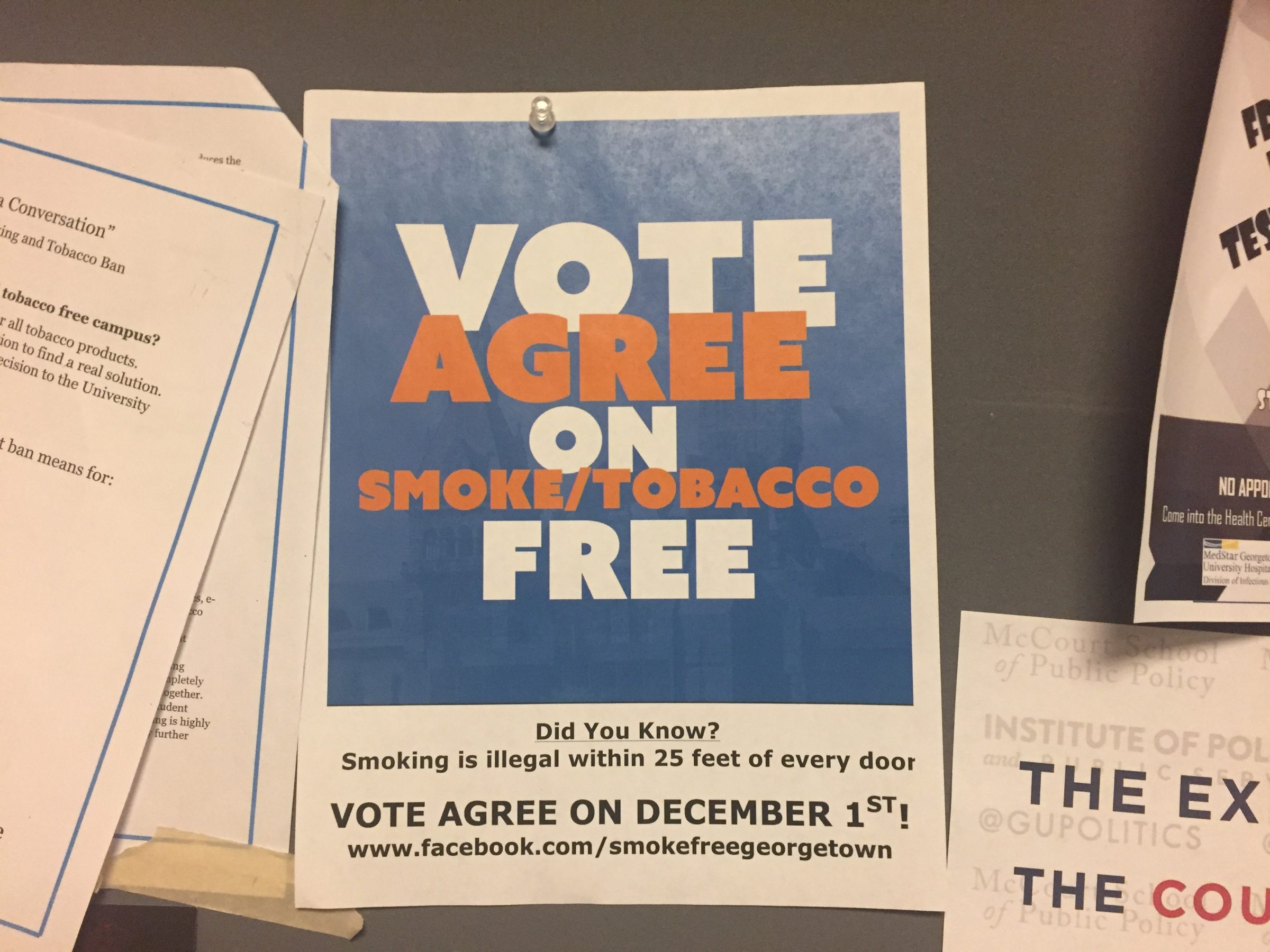Nearly four years after students voted in favor of making Georgetown a smoke-free campus, the university implemented the policy on Aug. 15.
The students who voted for the proposal in a GUSA referendum are no longer on campus to see it go into effect. That group of Hoyas barely approved the proposal, with a plurality of 49 percent of voters in support and 46 percent against. On April 28 of 2019, the university announced Georgetown would become a smoke-free campus to “maintain a safe and healthy environment at Georgetown University for our students, faculty, staff, visitors and contractors.”
“This initiative is an expression of who we are as a University and how we live out one of our most central values: care of the whole person,” a university spokesperson wrote in an email to the Voice.
Due to limited on-campus housing as a result of the ongoing coronavirus pandemic, only a few hundred students will feel the impacts of the policy this semester. However, at some point, all students will return to a campus no longer tolerant of their JUULs and cigarettes. Here’s what they’ll find.
No one, whether they are a student, faculty and staff member, or visitor, may smoke or use tobacco on Georgetown’s grounds, including in buildings and vehicles. Prohibited actions include using cigars, cigarettes, pipes, and e-cigarettes. All of the main campus is included in this prohibition, meaning that students residing on-campus must leave campus entirely to smoke or vape.
According to the full policy language released by the university, “the success of this policy relies on the thoughtfulness, consideration and cooperation of smokers and nonsmokers, not only to comply, but also to encourage others to comply.”
Failing to abide by the smoke-free policy will be considered a violation of the Code of Student Conduct and will be resolved according to the code. While anyone can technically report students in violation, the university did not respond to specific questions about what individuals will have the power to stop smoking if they see it and what the severity of a typical sanction would be. Violations by faculty and staff will be handled through normal disciplinary processes; it is unclear what, if any, sanction the university can impose on visitors who violate the policy.
The majority of Georgetown students who live on campus are under 21, and thus were already prohibited from purchasing tobacco products under federal law. D.C. increased the legal age for purchasing tobacco products from 18 to 21 in 2018.
Despite this, students do regularly smoke and vape on campus, regardless of their age. Though there has not been any significant student resistance to the policy, it seems unlikely the policy will have much effect on discreet tobacco use, such as JUULing, as students are already circumventing federal regulations to smoke or vape.
For students who do wish to quit, the university is providing tobacco and smoking cessation resources. “This includes access to training, professional coaching, workshops and personalized cessation programs through all University-sponsored medical plans and through the Student Health Center,” according to a university spokesperson.








[…] What a smoke-free campus means for you The Georgetown Voice Source: Google News […]